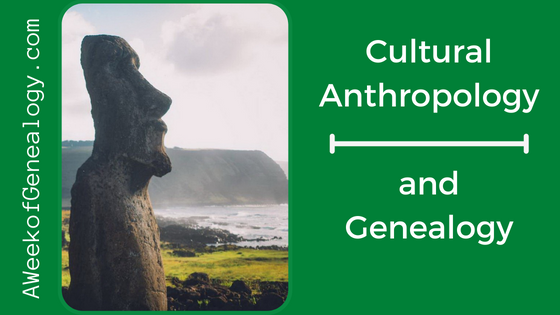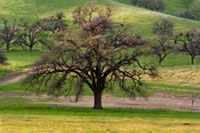Cultural Anthropology and Genealogy

Cultural Anthropology
Last semester I took a third course in anthropology. After taking courses in Archaeology and Biological Anthropology, the next for me to tackle was Cultural Anthropology. (Our local community college does not offer a course in the fourth area of anthropology, linguistic anthropology.) Due to the nature of the subject material, this class was the least rooted in hard science. Cultural Anthropology studies how a society organizes itself. This is done through its beliefs, and how people live, think, create and find meaning. It introduces the concept that cultures have an intrinsic logic in their practices.
A big part of this branch of anthropology is fieldwork. Anthropologists in the field study societies, collecting data to build ethnographies. This data is often qualitative. Originally fieldworkers studied societies as impartial and distant observers; later they shifted to coming off the veranda to be participant observers.
When we go beyond our ancestors’ birth and death dates to fill in the dashes with what they did between those two dates, we are doing something similar to the fieldwork done by anthropologists. We often wish that we could go back in time to come off the veranda to be participant observers but lacking that option we can use the older anthropologists’ method of building their work on others’ first-hand source material. In our pursuit, we can use published sources that were contemporary to their times to learn about their culture at their time. When we research and write about our ancestors, we are building an ethnography. We can interact with the artifacts that they and their contemporaries left behind, which is like the activities of archaeologists.
Even though we cannot be participant observers in our ancestor’s society during their time, sometimes we can participate with a society that is close to theirs. This can be done through participating in ethnic crafts, cooking, dancing, clothing, reading the books they read, learning stories they told and heard, and learning about or practicing their beliefs.



